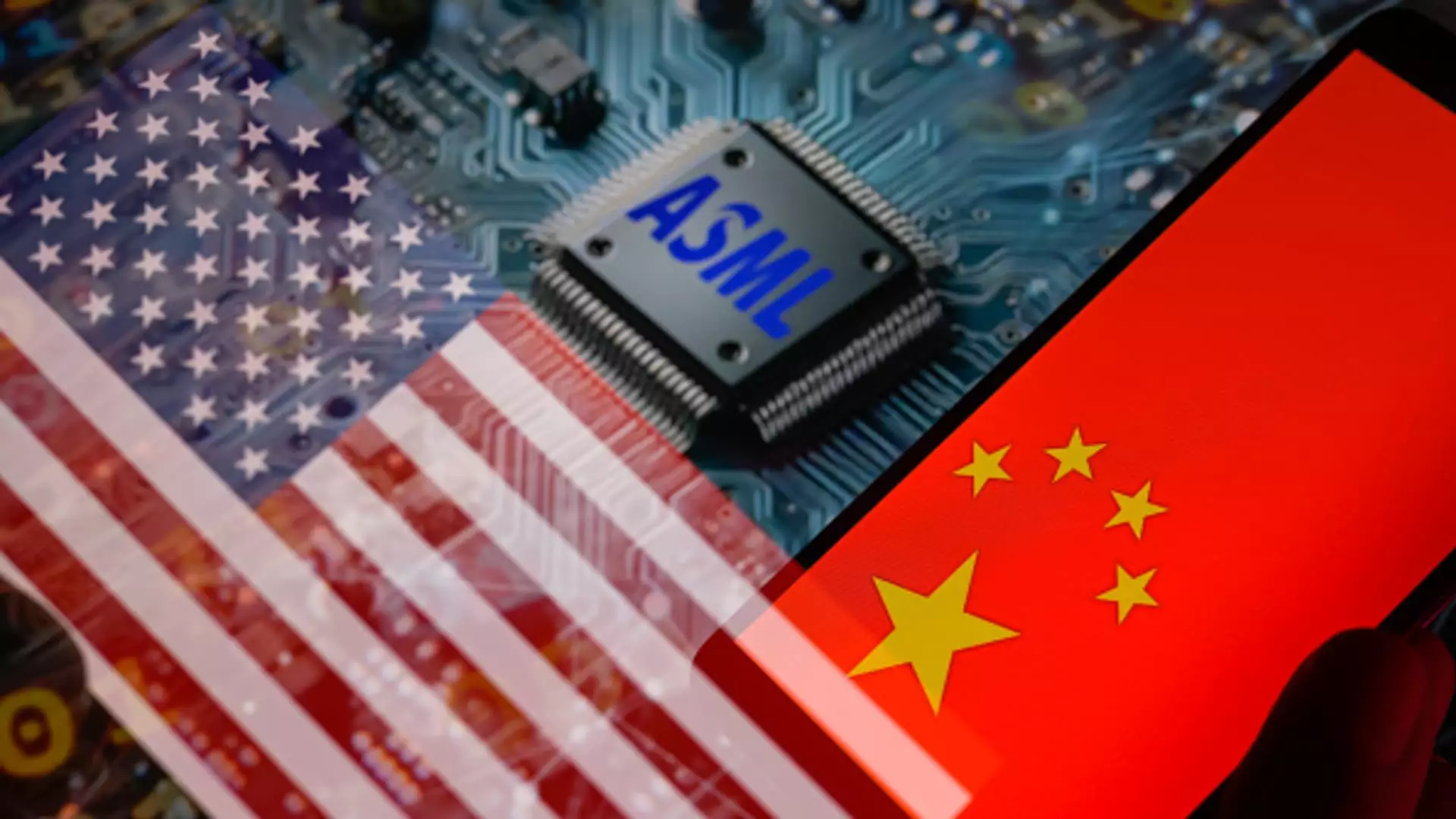In the ever-evolving landscape of the global semiconductor industry, recent news has sent shockwaves through the market. Key players in semiconductor equipment manufacturing observed significant stock price upticks on Thursday, fueled by reports of a potential shift in U.S. sanctions against Chinese chip companies. Notably, ASML, a pivotal Dutch firm in the semiconductor supply chain, saw its stock rise by approximately 3.6% during early trading in Europe. Meanwhile, Japanese competitor Tokyo Electron experienced an even more substantial surge, climbing over 6%. This enthusiastic market reaction is indicative of investor sentiment around easing restrictions that had previously loomed over the industry.
The backdrop of these financial movements lies in the broader narrative of the U.S. government’s attempts to curb China’s advancements in semiconductor technologies. A report from Bloomberg revealed that the U.S. is contemplating new measures that would impose limitations on the sale of critical semiconductor manufacturing equipment and artificial intelligence (AI) memory chips to Chinese firms. However, the proposed regulations appear to be less stringent than earlier suggestions, which had raised concerns among investors and companies alike.
The U.S. Commerce Department, through its Bureau of Industry and Security, has historically been tight-lipped regarding sanctions, particularly in response to media inquiries. The implications of these sanctions are profound, especially when considering the specific firms affected. Notably, the potential exclusion of ChangXin Memory Technologies—a significant Chinese rival to established entities like SK Hynix and Samsung—has drawn attention, as analysts forecast a potentially lesser decline in sales for ASML in China.
ASML finds itself in a precarious position, caught between the competing interests of the U.S. and China while being a crucial supplier of advanced lithography machines essential for semiconductor fabrication. These machines play an instrumental role in allowing manufacturers to produce cutting-edge semiconductor chips. Despite facing restrictions on exporting its most advanced technologies to China, changes in U.S. policy could mitigate the expected revenue loss. Analysts from Jefferies previously estimated a 30% revenue drop for ASML in the coming year from the Chinese market. However, the exclusion of pivotal Chinese companies from sanction lists might mean that this decline could be less severe than initially projected.
The company’s operations are significantly affected by any regulations aimed directly at semiconductor manufacturing plants, known as fabs, which are vital consumers of ASML’s machinery. These fabs include industry titans such as Taiwan’s TSMC and China’s SMIC, both of which are central to the intricate semiconductor supply networks that span across international borders.
While the modification in the proposed U.S. sanctions on China may present a glimmer of hope and relief for semiconductor equipment manufacturers, it also underscores the ongoing geopolitical tensions surrounding technology and trade. Any fluctuations in U.S. policies not only impact revenue for companies like ASML but also alter the competitive landscape of the semiconductor industry on a global scale.
Ultimately, the dynamics of U.S.-China relations, particularly in the technology sector, remain a critical aspect of global economic discourse. As firms adjust to these shifting tides, the semiconductor industry will continue to be a focal point of scrutiny and speculation among investors and analysts alike. The ripple effects of these regulatory changes will likely shape market behaviors, technological advancements, and international partnerships in the years to come.

